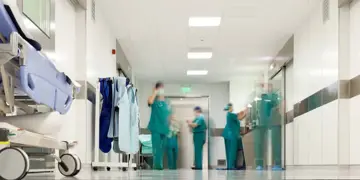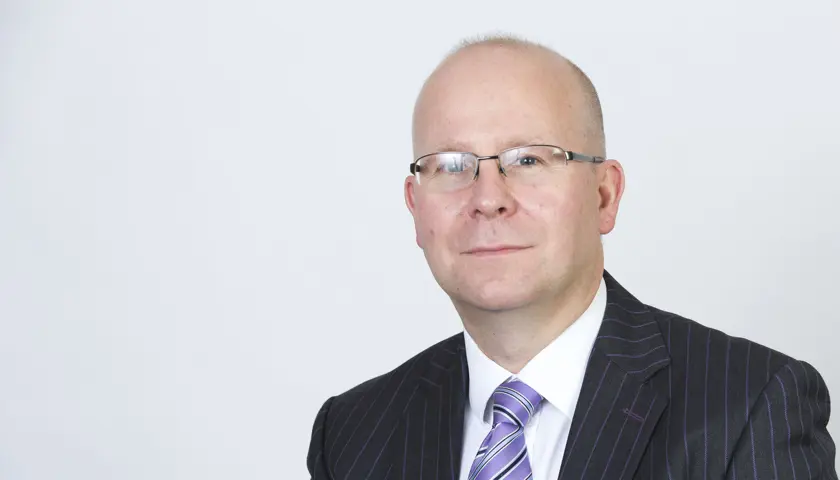
Burnout forces doctors to take remedial action
NHS staff consider leaving UK to protect themselves, finds GMC report
Workplace burnout is forcing doctors to ‘take matters into their own hands’ to protect themselves and patients, the BMA has warned following the findings of a GMC report.
Doctors are reducing their hours, refusing additional work and even taking ‘hard steps’ towards leaving the UK, according to latest edition of the state of medical education and practice in the UK: Workplace Experiences report.
Published today, it highlights what the association has described as ‘worrying levels of burnout’ across the medical profession, with 33 per cent of doctors telling the GMC they regularly worked beyond their rostered hours and felt unable to cope with their workload.
The report also revealed that almost a fifth of doctors surveyed (19 per cent) had reduced their hours with 41 per cent having refused to take on additional work, while 23 per cent reported having had to take time off work owing to stress during 2023.
43 per cent of doctors told the GMC they had found it difficult to provide a ‘sufficient level of care’ to patients owing to pressures in the workplace, while 16 per cent said they had taken hard steps to leave medical practice in the UK – up from just 7 per cent stating this in 2021.
Rationed work
Commenting on the report’s findings, BMA representative body chair Latifa Patel said the figures reveal the extent to which many doctors were being forced to change their working practices to safeguard their own wellbeing and their patients’ safety.
She said: ‘With large numbers of doctors struggling to cope with workload pressures and already working regularly beyond their contracted hours, we have worrying levels of burnout and patient safety is being put at risk. It is clear doctors are now being forced to take matters into their own hands to protect themselves and their patients.
‘Reducing hours will be a last resort for many doctors who want to be working, looking after patients and supporting their colleagues. But ultimately, a burnt-out doctor is not a safe doctor.
‘At a time when the Government is promising an extra 40,000 appointments a year at evenings and weekends, not only do we have more than four in 10 doctors declining to take on extra work, but one in five reducing their regular hours. Rising numbers of doctors are also saying they plan to make career changes in future such as reducing hours or leaving the UK altogether.’
Call for support
Dr Patel added that the report made clear that simply trying to increase recruitment would not solve the existing problems posed by workplace pressure and called for the Government and the NHS to do more to support doctors.
She said: ‘Losing doctors from an already-short workforce will mean remaining capacity is stretched even more thinly – piling additional pressure on doctors and longer waits for patients.
‘Even with increased recruitment, it’s clear the NHS, the Government, regulators and training bodies need to do much more to support doctors and keep them in the workforce – rather than forcing them to reluctantly reduce work or letting them go prematurely. The GMC is right to highlight this untenable position and what needs to be done to support and value doctors to deliver safe patient care.
Other findings from the report revealed how workplace pressures are disproportionately affecting certain groups of doctors.
Among doctors with disabilities, 44 per cent reported struggling with their workload with 52 per cent finding it difficult to provide sufficient care to patients, compared with 32 per cent and 42 per cent of non-disabled doctors.
GPs’ finances
While pressure and burnout take their toll on doctors across the profession, the report also exposes the extent to which doctors in general practice are being affected, with 48 per cent of GPs reporting struggling with their workload compared with 33 per cent of all doctors from all specialties.
With a recent ballot result set to see GPs in England take collective action in response to a disputed offer on their national contract, BMA GPs committee UK co-chairs Alan Stout and Andrew Buist said the GMC’s findings would come as little surprise to many in primary care.
They said: ‘Changes to work patterns are a symptom of the pressures facing general practice. For too long, practices haven’t been given the funding they need to keep up with rising running costs, hire the staff they need, or, in some cases, stay open. On top of growing patient demand, many GPs are at breaking point.
‘Core GP contract funding must be increased, so that practices can afford to provide safe, efficient GP-led services that reduce pressure on staff. More immediately, health departments must agree a fair method for funding the latest Review Body on Doctors' and Dentists' Remuneration uplift and associated overheads for all practice staff with us, or there is a significant risk of crippling practice finances even further.’




